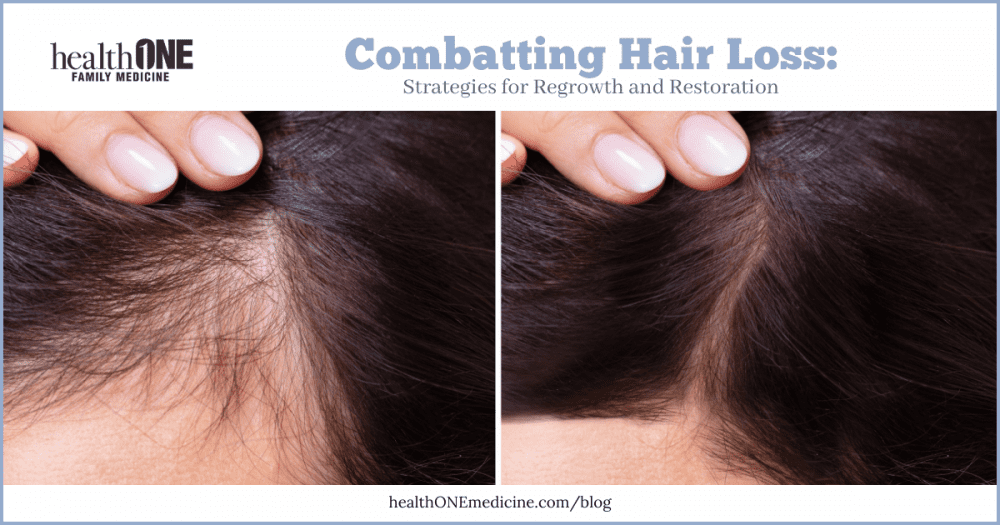Hair loss can be a distressing experience for anyone, often taking a toll on their self-confidence and mental well-being. However, there are several strategies for managing hair loss, including lifestyle changes, topical treatments, and medical interventions.
Let’s have a look at some effective hair loss treatments and see how you can take steps toward regaining a healthy and vibrant head of hair.
Hair Loss
Hair loss, aka alopecia, can occur due to various factors. These typically include genetics, hormonal changes, age, medical conditions, and lifestyle habits.
Androgenetic alopecia, also called pattern baldness, is another type of hair loss affecting both men and women. Typically, it results in gradual thinning of the hair on the scalp.
Best Hair Loss Treatments
From topical treatments to making lifestyle changes, here are some strategies and treatments for hair loss:
Healthy Lifestyle Habits
Maintaining a healthy lifestyle has a positive impact on just your overall health but also your hair health. Here are some easy strategies to minimize hair loss that you can incorporate into your daily routine:
- Ensure you consume a well-rounded diet rich in vitamins, minerals, and proteins. Include foods such as fruits, vegetables, whole grains, lean meats, and legumes as they are packed with essential nutrients that promote hair growth.
- Engage in regular physical activity to improve overall blood circulation, which can promote your hair follicle health. Aim for at least 30 minutes of moderate exercise most days of the week.
- Practice stress-reducing techniques like meditation, deep breathing exercises, or engaging in activities you enjoy. Chronic stress can be a major cause of hair loss, so finding healthy coping mechanisms is essential.
- Avoid harsh hair chemical treatments and excessive use of tools like straighteners and curlers that depend on heat to style your hair. Be careful not to tie your hair too tightly when styling as it can lead to hair loss.
- Practice gentle hair care practices, such as using a wide-toothed comb and avoiding excessive brushing. It is best to air dry your hair whenever possible.
Topical Treatments
Several over-the-counter topical treatments can help slow down hair loss and stimulate hair regrowth. These treatments typically come in the form of shampoos, conditioners, foams, or serums containing ingredients that promote hair health.
Some common ingredients to look for include minoxidil, biotin, caffeine, and ketoconazole. However, it’s important to follow the instructions and consistently use these products to see potential benefits.
Medical Interventions
Medical interventions may be necessary in cases of more advanced or persistent hair loss. A consultation with a dermatologist or a hair restoration specialist can help determine the most suitable hair loss treatment for you. Some common medical interventions for hair loss include:
- Prescription medications, such as finasteride, are often recommended to help slow down the process of hair loss and promote regrowth in certain cases. It is important to note that only healthcare professionals can prescribe these medications.
- Hair transplantation involves surgically moving hair follicles from a donor area to thinning or balding areas. This procedure can provide natural-looking results and restore hair density.
- Another option is a non-invasive treatment called Low-level laser therapy (LLLT), where dermatologists use red light wavelengths to activate hair follicles and foster regrowth. This therapy can be administered in a clinical setting or through at-home devices.
Nutritional Supplements
In addition to a balanced diet, certain nutritional supplements may help promote your hair health and combat hair loss. A healthcare professional can help determine if supplements, such as biotin, vitamin D, iron, zinc, or omega-3 fatty acids, are appropriate for your specific needs. These supplements can provide you with essential nutrients that support hair growth and overall hair health.
Scalp Massage and Care
Regular scalp massage can stimulate blood circulation to the hair follicles, promoting hair growth and overall scalp health.
Press your fingertips into your scalp and use gentle circular motions for a few minutes daily. You can also incorporate natural oils, such as coconut oil or castor oil, during the massage to nourish the scalp and hair.
When washing your hair, choose a gentle shampoo and conditioner that will work well for your hair type. Try not to use hot water, as it can remove natural oils from your hair and cause dryness.
Additionally, avoid towel drying your hair too often or roughly, as it can cause hair breakage. Instead, pat dry your hair or let it air dry naturally.
The Last Word
Managing hair loss requires a multifaceted approach. Remember, results may vary for each individual, and it’s important to be patient and consistent with your chosen hair loss treatment. With the right strategies and a positive mindset, you can work towards regaining confidence and enjoying healthier and luscious hair.
If you have concerns about hair loss, consult with our efficient and experienced healthcare professional or a hair specialist at Health One Family Medicine. We will provide guidance tailored to your specific needs.
Book an appointment today by calling (469)262-5762 or visit https://www.healthonemedicine.com/ for more details.


I’m thoroughly captivated with your keen analysis and superb ability to convey information. The knowledge you share shines through in every sentence. It’s evident that you invest a great deal of effort into delving into your topics, and that effort does not go unnoticed. We appreciate your efforts in sharing such valuable insights. Continue the excellent job! https://www.elevenviral.com